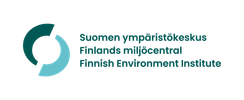Enabling Circular Economy for Plastics: Novel approaches to Product Design and Logistics
Embarking on the Circular Economy for Plastics prompts a reevaluation of the plastic lifecycle, one step at a time. In Finland, multiple initiatives are underway, forging pathways to scrutinize the entire lifecycle of plastic and shake up existing systems. Beyond sorting, collection, and recycling of plastics, additional measures are crucial to foster a sustainable circular economy.

Themes of product design and logistical solutions were explored on November 27th in a seminar organized by the PlastLIFE project and the SPIRIT programme, aimed at advancing the circular economy for plastics. Over a hundred experts convened to seek solutions for both the inception and conclusion of the plastic lifecycle.
Circular economy-oriented product design challenges single-use culture
Product design trends have traditionally emphasized the seasonal fashion, company sales and market strategies, and replacing the old with a new. With the rise of environmental values, product design is shifting towards sustainable materials and recycling.
Professor Jonna Häkkilä and her team at the University of Lapland are investigating the possibilities of product design in the PlastLIFE project. In her keynote at the seminar, Häkkilä highlighted how changes in consumer behavior impact the work of product designers:
“Citizens are increasingly becoming active agents in the product’s life cycle, and movements such as upcycling and DIY challenge the conventional ways of thinking in product design. This talk takes the viewpoint of co-design and citizen engagement, particularly in the context of reducing, reusing and recycling plastics.”
Recycled plastic in new products: an act for the climate
By investing in plastic recycling and utilizing recycled plastic in new products, the need for virgin materials can be reduced, along with the incineration of plastic waste, consequently decreasing environmental impact.
“When considering the climate benefits of high-grade and low-grade plastics recycling, downcycling can significantly postpone incineration of waste plastics, which is good for the climate. However, high-grade recycling is better because it can reduce both incineration and primary production of plastics,” explained Researcher and Advisor Tomas Ekvall, Adjunct professor at Chalmers University of Technology in his seminar presentation.
What will the future of circular economy logistics look like?
The growth in sorting and collection of packaging waste threatens to increase the carbon footprint of recycling logistics. It has been suggested to explore whether the carbon footprint of recycling logistics can be reduced by simplifying the collection of packaging waste and improving their sorting on an industrial scale.
In his keynote Research professor Ali Harlin, VTT Technical Research Centre, said that contemporary packaging waste logistics face two main challenges: namely increasing complexity and thereafter reduction of efficiency.
“In the future we have to improve the robustness of the sorting in order to control logistics impact on total carbon footprint without compromising the achievable quality of collected material streams,” says Professor Harlin.
Enhancing circular economy for plastics through product design and logistics development
Developing new solutions requires collaborative ideation and combining expertise from various fields. Expert workshops held during the event sought perspectives and new opportunities for product design and logistics solutions.
"Through design, it's possible to impact the reduction of unnecessary plastic consumption, improve product reparability, replace fossil raw material usage, and promote reuse and recycling at various stages. Material choices and structural solutions in product design, as well as the design of service systems for reusable products, are examples of new opportunities," summarized Helena Dahlbo, Senior Research Scientist, and project manager of the PlastLIFE project.
In the other afternoon workshop, waste collection was discussed. The topic and the proposed scenario study generated widespread interest.
Says Jari Lehtinen, head of the SPIRIT programme: “The abundant comments provided by the participants regarding various waste collection models are valuable content when shaping a more concrete research plan on the subject.”
Seminar: A successful demonstration of the importance of cross-collaboration in projects
The 'Enabling the Circular Economy of Plastics' seminar, gathering over a hundred professionals from the business and research realms interested in plastic circularity, took place at Espoo's Innopoli. This collaborative event was organized by two nationwide project alliances that began last year: the PlastLIFE project led by the Finnish Environment Institute and the SPIRIT programme led by Borealis Polymers. PlastLIFE and SPIRIT, along with their partners, are dedicated to enabling sustainable circular economy practices, enhancing plastic recycling, and promoting the utilization of recycled plastics.
PlastLIFE and SPIRIT bring together over 60 partners to work towards accelerating the circular economy of plastics. The collaboration includes plastic industry stakeholders, recycling companies, organizations, research institutions, and universities. PlastLIFE, coordinated by the Finnish Environment Institute and funded by the EU's LIFE programme, promotes the goals of Finland's Plastic Roadmap, aiming to reduce and avoid unnecessary plastic consumption, enhance plastic recycling, and replace fossil-based raw materials in production. Meanwhile, SPIRIT aims to steer Finland's plastic industry towards manufacturing plastic based on renewable resources, achieving carbon-neutral production, and establishing a functional circular economy for plastics. The programme, led by Borealis Polymers, is funded by Business Finland.

Keywords
Contacts
Senior Research Scientist Helena Dahlbo, PlastLIFE Project lead, Finnish Environment Institute, tel. +358 295 251 095, helena.dahlbo@syke.fi
Head of SPIRIT Programme Jari Lehtinen, Borealis Polymers, tel. +358 50 3794 270, jari.lehtinen@borealisgroup.com
Communication Specialist Johanna Kaunisto, Finnish Environment Institute, tel. +358 29 525 2297, johanna.kaunisto@syke.fi
Communication Specialist Heli Poikonen, Borealis Polymers, +358 50 3794 119, heli.poikonen@borealisgroup.com
Media service at Finnish Environment Institute
Our Media Service provides information on research, helps journalists find experts for interviews and provides photos for media use.
Our Communication experts will answer your inquiries on weekdays from 9 am to 4 pm.
Links
Finnish Environment Institute - We build hope through research.
Finnish Environment Institute
Latokartanonkaari 11
00790 Helsinki
+358 295 251 000
It is time to move beyond solving environmental problems one by one, to systemic sustainability transformations. The Finnish Environment Institute (Syke) contributes to building a sustainable society through research, information and services. The Finnish Environment Institute is a research institute with 700 experts and researchers located in Helsinki, Oulu, Jyväskylä and Joensuu.

Subscribe to releases from Suomen ympäristökeskus
Subscribe to all the latest releases from Suomen ympäristökeskus by registering your e-mail address below. You can unsubscribe at any time.
Latest releases from Suomen ympäristökeskus
Vuoden 2026 alusta voimaan astuvat F-kaasuja koskevat uudet rajoitukset ja velvoitteet29.12.2025 16:03:26 EET | Tiedote
Vuosi 2026 tuo rajoituksia fluorattujen kasvihuonekaasujen (F-kaasujen) käytölle ilmastointilaitteiden ja lämpöpumppujen huollossa, desfluraanin käyttöön inhalaatioanesteettina ja uusia F-kaasuihin liittyviä laitekohtaisia kieltoja.
Nuoret vaativat merkittäviä muutoksia ruuan kulutukseen ja tuotantoon16.12.2025 12:00:00 EET | Tiedote
Nuorten ruokaraati vaatii avointa ja tutkittua tietoa ruuasta – sen alkuperästä, tuotantotavoista ja vaikutuksista ilmastoon, luontoon ja hyvinvointiin. Ilman selkeitä faktoja vastuulliset kulutusvalinnat eivät ole mahdollisia. Nuoret luovuttavat kannanottonsa kansalliseen ruokastrategiaan 2040 maa- ja metsätalousministeriön tilaisuudessa 16.12.2025.
Kommunernas utsläpp fortsätter minska – trafikens andel av utsläppen ökar16.12.2025 06:00:00 EET | Pressmeddelande
Enligt förhandsberäkningsuppgifterna för 2024 minskade Finlands växthusgasutsläpp enligt Hinku-beräkningsreglerna med cirka fem procent jämfört med föregående år. På lång sikt har utsläppen sedan år 2005 minskat med 40 procent och jämfört med år 1990 med 43 procent.
Kuntien päästöt laskevat edelleen – liikenteen osuus päästöistä kasvaa16.12.2025 06:00:00 EET | Tiedote
Vuoden 2024 ennakkolaskentatietojen perusteella Hinku-laskentasääntöjen mukaiset Suomen kasvihuonekaasupäästöt laskivat noin viisi prosenttia edelliseen vuoteen verrattuna. Pitkällä aikavälillä vuodesta 2005 lähtien päästöt ovat vähentyneet 40 prosenttia ja vuoteen 1990 verrattuna 43 prosenttia.
Viikkokatsaus 15.–19.12.202511.12.2025 12:59:58 EET | Tiedote
Hei! Tässä tiedoksesi meillä Suomen ympäristökeskuksessa ensi viikolla ilmestyviä tiedotteita, uutisia, kampanjoita, blogeja ja uutiskirjeitä. Mukana myös tulevia tapahtumia ja webinaareja. Jakelemme viikkokatsauksen torstaisin STT:n kautta. Koosteet löytyvät myös STT-uutishuoneesta, josta voit tilata kaikki Suomen ympäristökeskuksen tiedotteet.
In our pressroom you can read all our latest releases, find our press contacts, images, documents and other relevant information about us.
Visit our pressroom